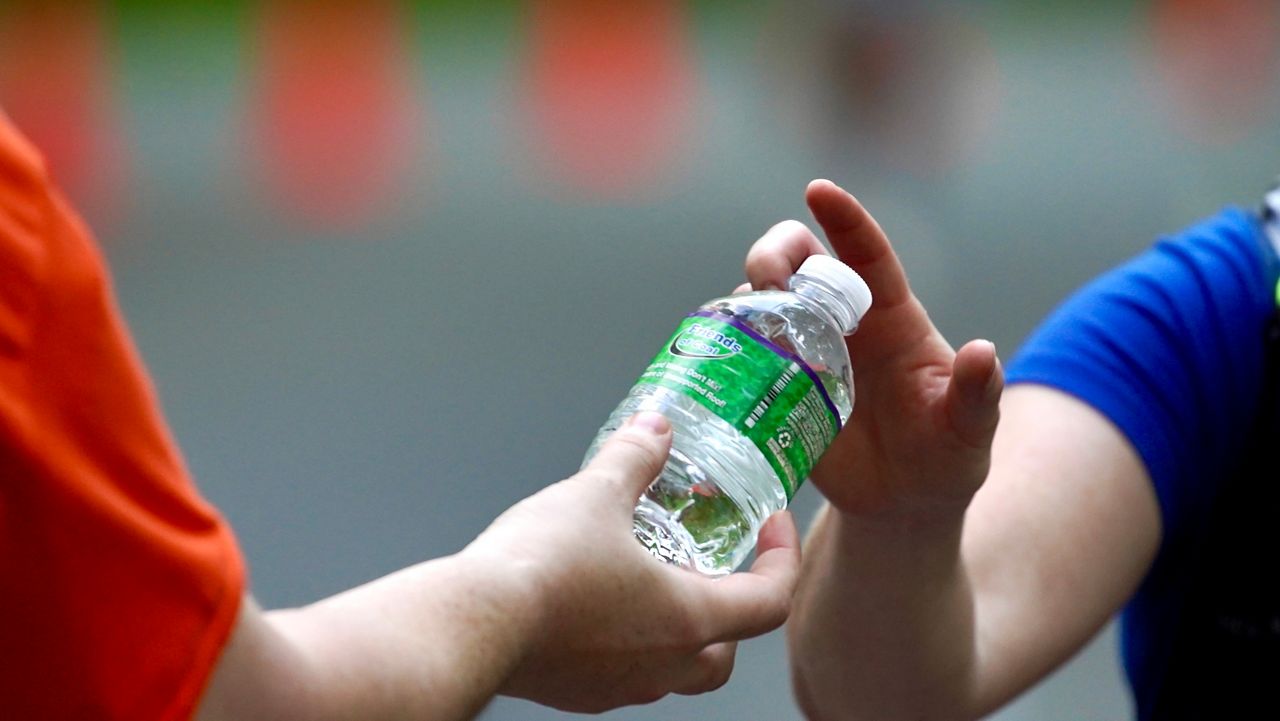OHIO — As temperatures reach into the 90s, and heat indexes reach nearly into the 100s, there are many heat-related risks Ohioans could face including heat stroke, heat exhaustion and dehydration.
According to the Cleveland Clinic, dehydration is when a person loses so much body fluid that they are unable to function normally which can occur on hot days, when a person sweats a lot or if a person is sick.
According to Dr. Lora Scott, chief of sports medicine at Dayton Children's Hospital, symptoms of dehydration in children include a dry, sticky mouth, sunken eyes, moodiness, fatigue, dizziness when standing and urinating less frequently.
Other symptoms for youth are no tears when crying, dry, wrinkled skin, deep, rapid breathing, and having fewer than six wet diapers per day for infants, and no wet diapers or urination for eight hours for toddlers. They could also display blotchy hands and feet.
For adults, symptoms remain similar in some cases with headaches, fatigue, dizziness, dry mouth and a dry cough. Other symptoms include having a high heart rate, but low blood pressure, flushed skin, swollen feet, muscle cramps, a loss of appetite but maybe craving sugar and heat intolerance or chills.
When urinating, the darker urine is, the more dehydrated a person is.
Water is vital for bodily functions ranging from saliva production, aid digestion, balance chemicals, deliver oxygen and regulate the body's temperature.
Dehydration can cause blood pressure to drop dangerously. According to Cleveland Clinic, when the body tries to correct it blood pressure can rise quickly.
According to the Clinic, infants, children and adults above the age of 65 are at a higher risk of dehydration. With children, depending on age, they may not be able to communicate their thirst. Parents and guardians should monitor the amount of fluids taken in when a child shows signs of dehydration or is sick.
There is a similar risk in older age groups as their bodies do not retain as much water and may not be able to tell when they're thirsty. For caregivers, especially for those with memory problems, be sure to offer frequent fluids.
Health officials categorize dehydration into three categories:
- Mild: Treat by taking in more fluids orally, drink water but replace fluids with a liquid containing electrolytes if facing significant sweating, vomiting or diarrhea
- Moderate: Requires rehydration via an IV at an urgent care, emergency room or hospital
- Severe: See a health care provider, call 911, your local emergency services number or go to an emergency room. Treatment may include IV rehydration, electrolyte imbalance, acetaminophen for fever and rest
For those who showcase symptoms of severe dehydration, it is important to seek medical care quickly. Symptoms can include fever over 103 degrees Fahrenheit, nausea, rapid pulse, seizures, lack of sweating, fainting, hallucinations, rapid pulse, slurred speech, altered mental state or confusion.
Complications from severe dehydration can include: electrolyte imbalances, heat-related illnesses such as heatstroke, kidney issues such as kidney stones, kidney failure or shock, coma or possible death.
Scott said for infants, whether breastfeeding or formula feeding, a baby should take in about 2.5 ounces of breastmilk or infant formula per day, per pound of body weight; this adds up to between 24-32 ounces a day. Likely, an infant will regulate their intake, "so let them tell you when they've had enough."
Babies can start to be offered water, between four to eight ounces, at around 6 months old. Milk is not recommended before 12 months of age.
Toddlers should drink 16 ounces of milk a day and attempt to drink between eight and 32 ounces of water per day. Scott said school-aged children can drink water throughout the day and during activities.



